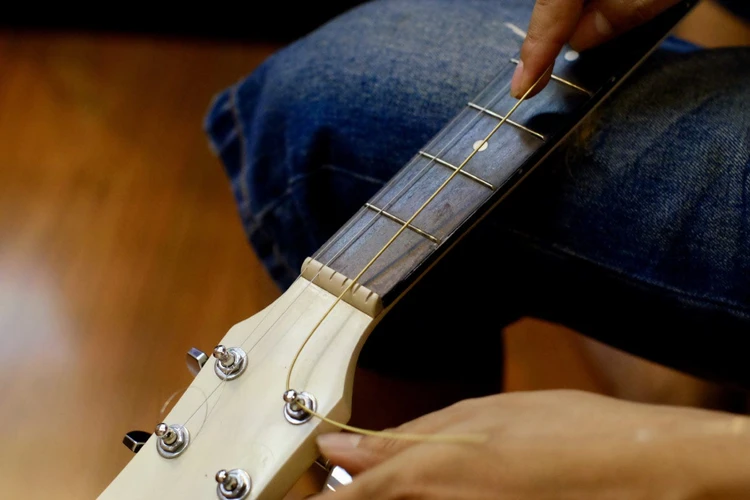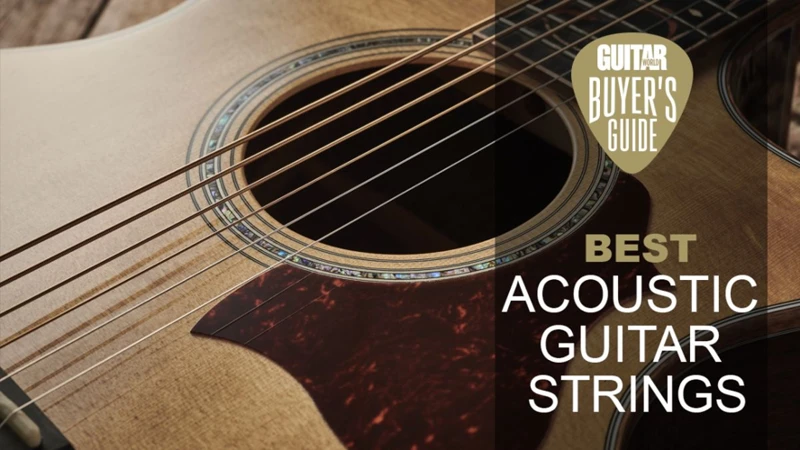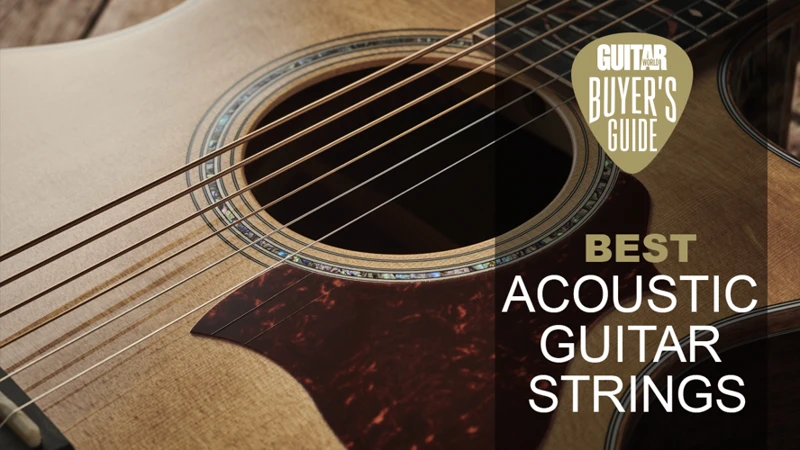When it comes to country music, the sound of an acoustic guitar is essential. The right strings can make a huge difference in the tone, feel, and overall sound of your instrument. In this article, we will explore the best strings for acoustic guitar in country music, so you can find the perfect fit for your sound.
Materials
The material of the strings is one of the most important factors to consider. The most common materials for acoustic guitar strings are bronze and phosphor bronze. Bronze strings have a bright, sparkling tone that is great for country music, while phosphor bronze strings have a warmer, mellower sound that is also well-suited for this genre.
Gauge
The gauge of the strings also plays a significant role in the sound and feel of your guitar. Lighter gauge strings are easier to play and have a brighter, more delicate sound, while heavier gauge strings have a richer, fuller sound and are better suited for heavy strumming. For country music, a medium gauge string is often a good choice, as it provides a balance between playability and tone.
Brands
There are many great brands of strings for acoustic guitar, but some of the most popular among country musicians include D’Addario, Elixir, and Martin. These brands offer a wide variety of strings in different materials, gauges, and coatings, so you can find the perfect set for your guitar and playing style.
Coated Strings
Coated strings are a great option for country musicians who want to keep their guitar in top playing condition. These strings have a special coating that protects them from dirt, sweat, and other contaminants, which can shorten the lifespan of the strings. Coated strings also have a smoother, slicker feel, which can make them easier to play.
Playability
Playability is an important consideration when choosing strings for your acoustic guitar. Strings that are easy to play and have a comfortable feel can help you to play your best and enjoy the process more. Some strings are designed to be extra-light, which makes them easier to play, especially for beginners.
Tone
Tone is another crucial factor when choosing strings for your acoustic guitar. Different materials, gauges, and coatings can all affect the tone of the strings. For country music, a bright, clear tone is often desirable, as it helps the guitar to cut through the mix and be heard clearly. However, some players may prefer a warmer, mellower tone, depending on their personal preferences and the style of music they play.
Longevity
Longevity is also an important consideration when choosing strings for your acoustic guitar. Strings that last a long time can save you money and time, as you won’t have to replace them as often. Coated strings, as mentioned before, are a great option for increasing the lifespan of your strings.
Price
Price is always a consideration when choosing strings for your acoustic guitar. While it’s important to find strings that fit your budget, it’s also important to remember that high-quality strings can make a big difference in the sound and playability of your guitar. It’s worth investing in a good set of strings, as they can improve your playing experience and help you to sound your best.
Looking to enhance your country guitar playing? Check out our articles on the best tuner for acoustic guitar, best electric guitars for country music, top acoustic guitarists in modern country music, and the best wood combinations for country guitar to take your skills to the next level!
Conclusion
When it comes to finding the best strings for acoustic guitar in country music, there are many factors to consider. From materials and gauges to brands and coatings, there are many options to choose from. By considering your playing style, the sound you want to achieve, and your budget, you can find the perfect set of strings for your acoustic guitar. With the right strings, you can take your country music playing to the next level and enjoy the process even more.




